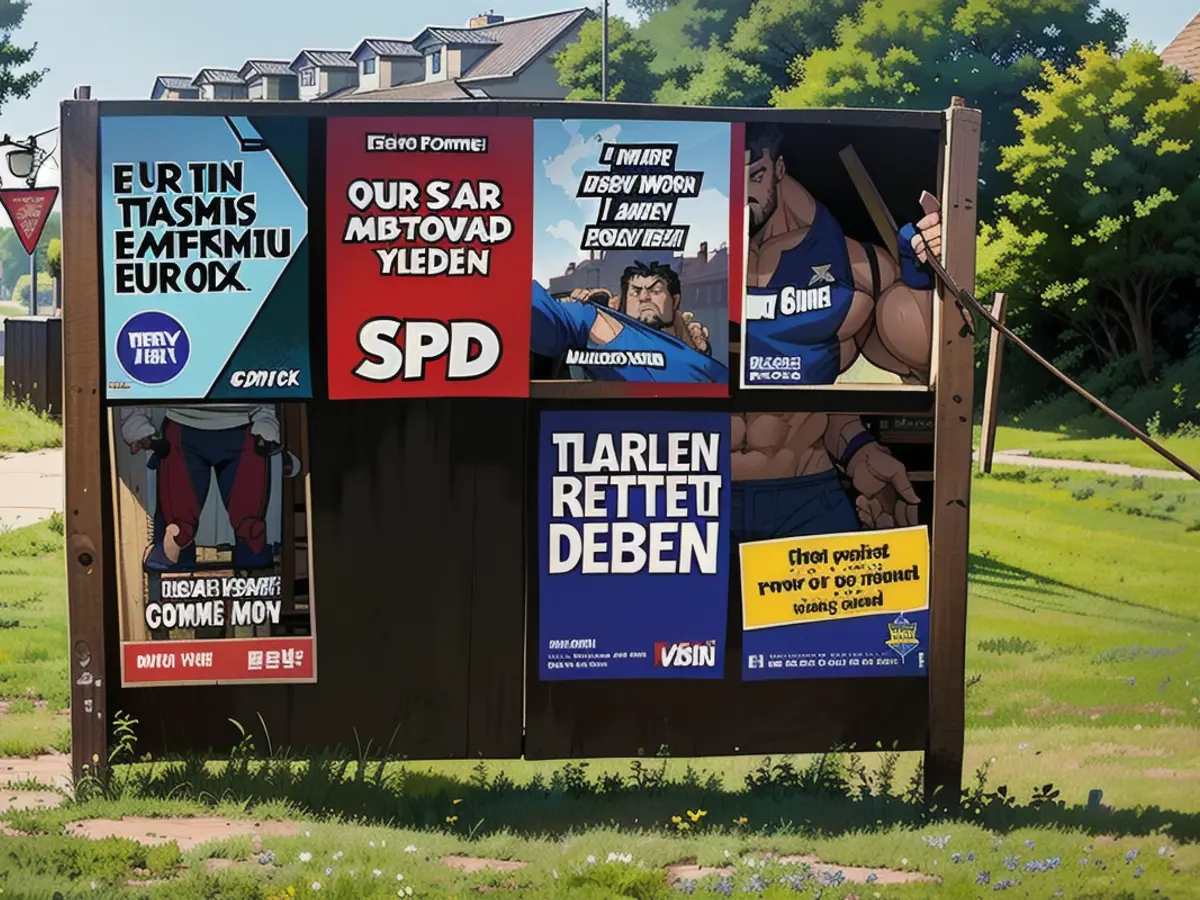To become a commissioner, one person must remain undisclosed.
A European election is fast approaching, but the top candidates from German political parties are largely unknown to the general public. There are several of these individuals with interesting backgrounds, including two contenders for the German commissioner position, one of whom is closely linked to Chancellor Scholz, another who is challenging CSU Chief Söder, and three newcomers to the European Parliament, as well as a candidate who is no longer campaigning. Ntv.de is providing an overview of these individuals and their political backgrounds.
Ursula von der Leyen, CDUUrsula von der Leyen is one of the most recognizable names in the race for the European election. She's been a well-known figure for years as a minister under Angela Merkel and is now looking to take on the role of Commission President. Von der Leyen has some advantages over most other candidates: not only was she born in Brussels, but her father, Ernst Albrecht, held various positions at the European Economic Community, the predecessor of the EU. She is fluent in French and English and is considered politically flexible.
Von der Leyen has been in tune with the Greens, with whom she launched an ambitious climate protection program for Europe. The Greens currently support some of her initiatives in the European Parliament. However, she is also open to political alliances with more conservative parties, such as the Fratelli d'Italia, if they meet the conditions of pro-Ukraine, pro-rule of law, and pro-USA. Her popularity in her own party is limited, with the CDU previously showing little enthusiasm for her leadership.
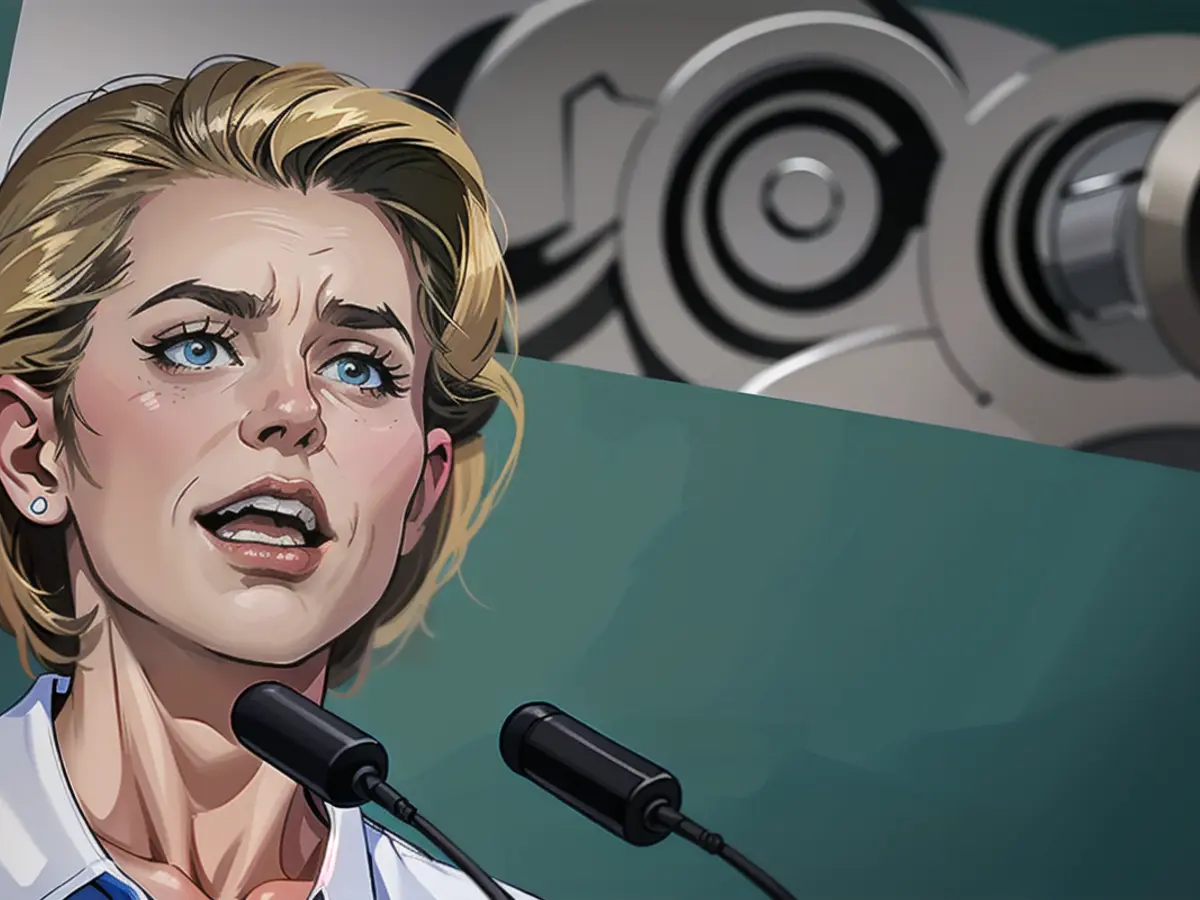
Terry Reintke, Bündnis90/Die GrünenTerry Reintke is a European MP at the age of 37 and the Spitzenkandidatin of the European Greens. However, she is not as well known in Germany. But that could change if Ursula von der Leyen is not reelected as Commission President. According to the coalition agreement of the traffic light government, the Greens have the right to determine a new German commissioner. If von der Leyen remains in office, Reintke wants her to continue only under certain conditions: the Green Deal of the Commission must be saved. If this is not possible, von der Leyen may look to more conservative allies, such as that of Italy's Fratelli d'Italia. Reintke, who is in a relationship with a French politician, has campaigned for equality and diversity for years. This could potentially cause difficulties for any possible alliance with a right-wing party.
Katharina Barley, SPDKatharina Barley is the top candidate for the SPD but is relatively close to Chancellor Olaf Scholz only on campaign posters. This may be due to their different personalities, with Barley embodying a more empathy-focused political style and Scholz maintaining more distance. Barley has praised the good cooperation between herself and Scholz in interviews but has also criticized von der Leyen's closeness to Orbán's government in Hungary. As a social democrat, Barley sees it as a significant task to fight corruption and the violation of the rule of law in Hungary.
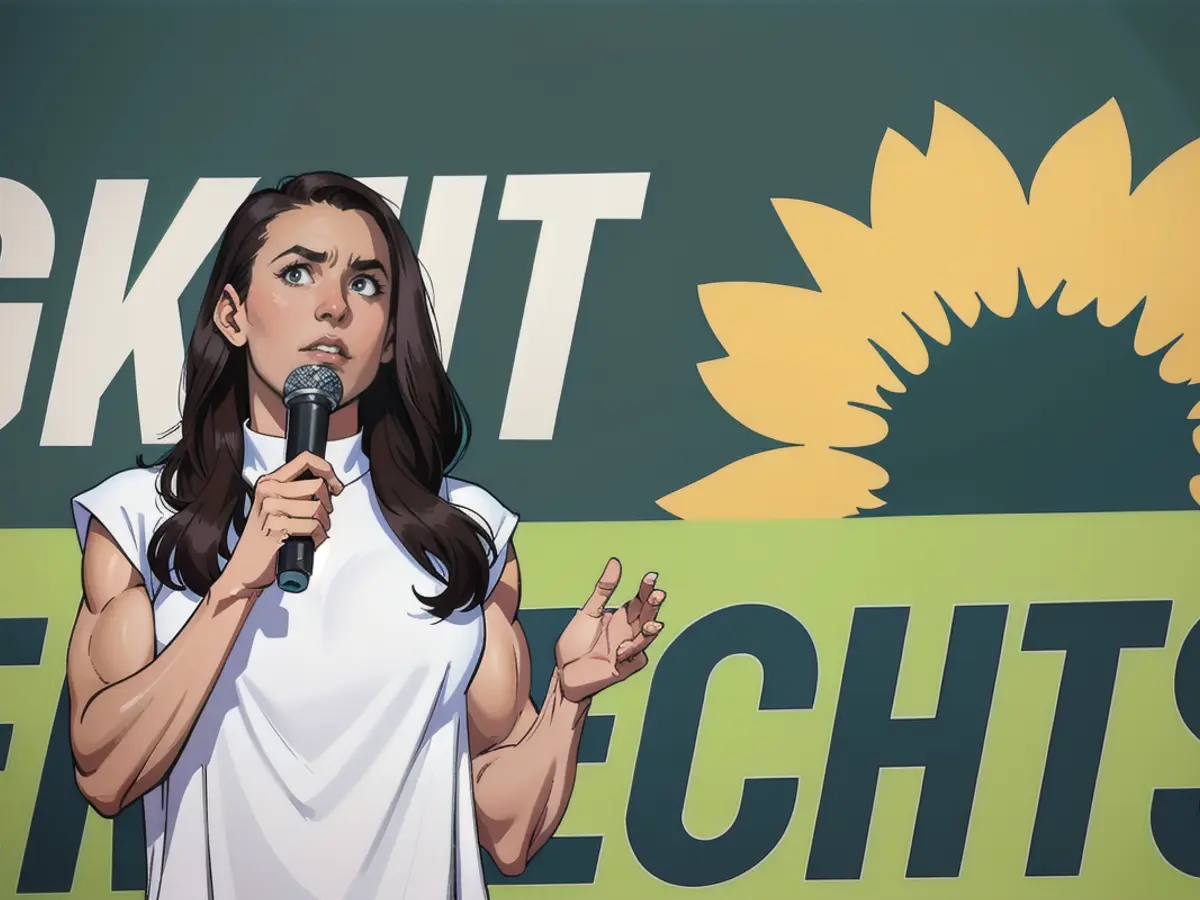
Maximilian Krah, AfDMaximilian Krah is a well-known figure in the race for the European election, second only to Ursula von der Leyen. However, he is no longer leading his party's European election campaign in person. He has become a controversial figure due to his alleged close ties to China and Russia. In the past, he's been caught making controversial statements about women and downplaying the crimes of the National Socialists. Krah has been expelled from the joint Europe group ID at the request of the Frenchwoman Marine Le Pen, costing his party votes and millions in EU funding.
These, then, are some of the most intriguing top candidates for the European election among the German parties. Their personal backgrounds and political views are diverse, and their potential impact on the election remains to be seen.
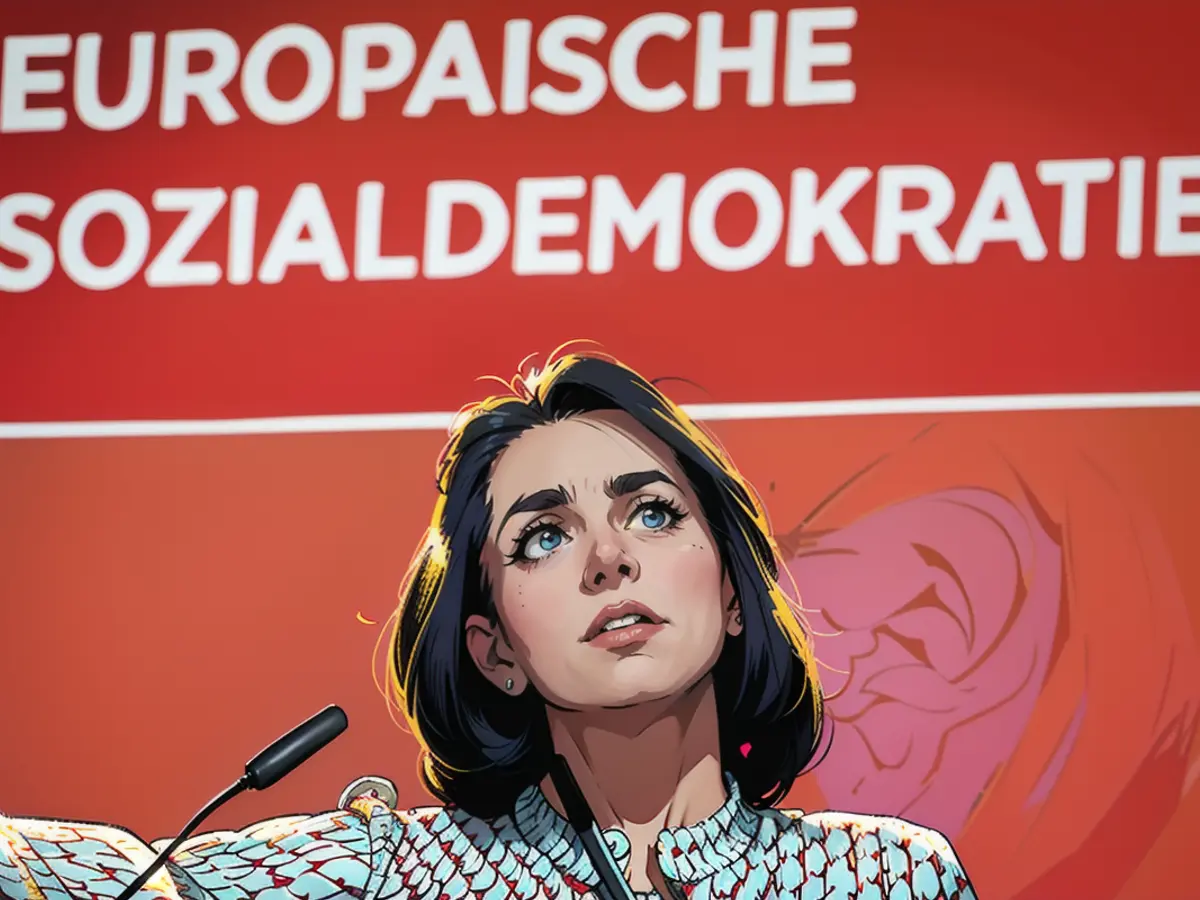
UPDATE: Maximilian Krah's exit from the AfD campaign
Recently, Maximilian Krah, the AfD's candidate for the European election, resigned from his position as the party's campaign leader. It is presumed that he took this step to prevent his party from further decline. The lawyer Krah made headlines with a staff member under suspicion of spying for China. Krah himself was also questioned about his lobbying for China and Russia after the incident. In an interview with an Italian newspaper, he made controversial statements, such as insisting that there were many SS members with "clean shirt." He has since become a thorn in the side of his party and cost the AfD significant votes and millions of euros in European Parliament funds.
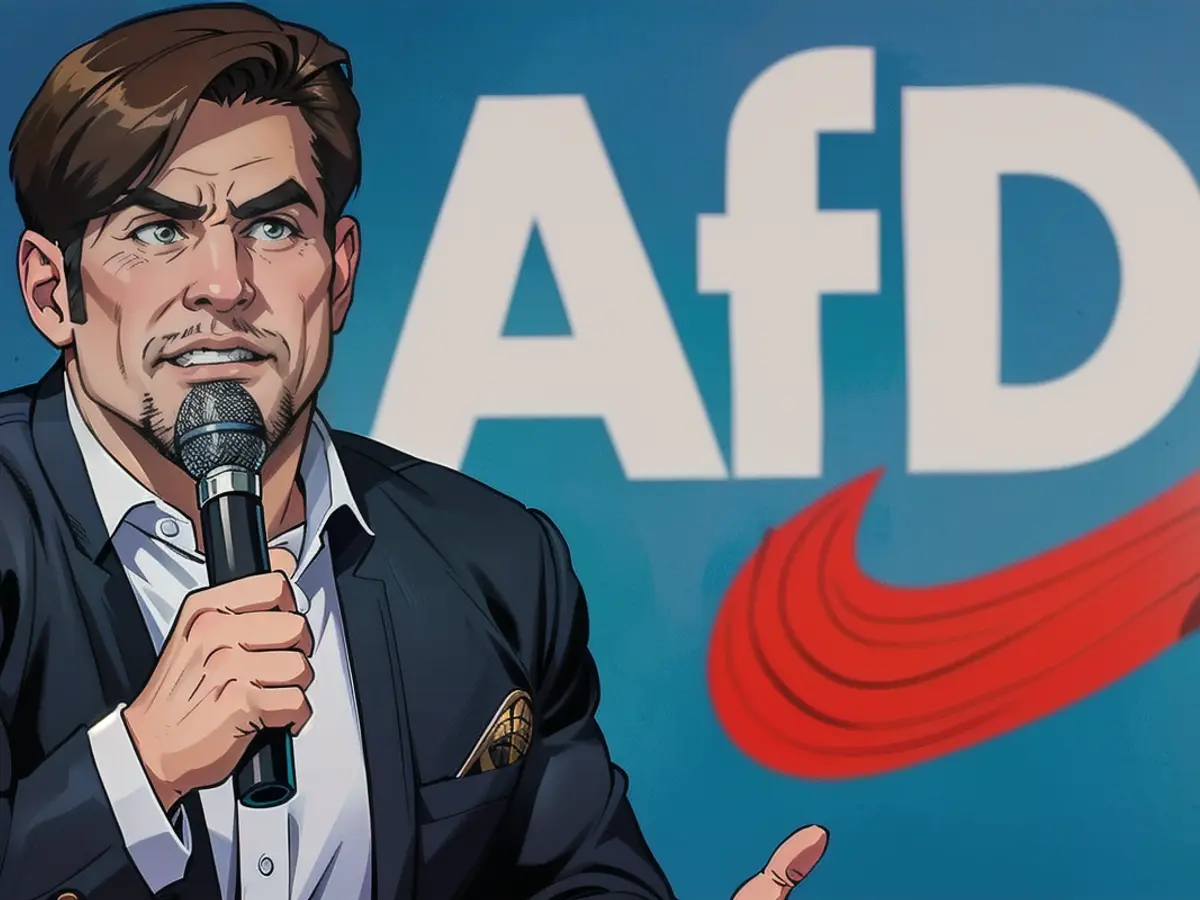
Manfred Weber, from the CSU, is a key figure for the CSU - virtually the sole CSU candidate. In the 2019 European elections, Weber was the prime candidate for the entire European People's Party (EPP), the conservative faction in the European Parliament. He aspired to be the EU commission's president but was turned down. Leading voices, including French President Emmanuel Macron, allegedly opposed him and instead championed Ursula von der Leyen.
Facing this setback, Weber continued to serve in the European Parliament as CSU's leader and in 2022, he also took over as the EPP's chair. With a sporty and modern persona, he's often showcased as a devoted European, championing issues such as stricter immigration policies and a review of the incinerator ban. Within the Parliament, Weber manages the cooperation between the EPP and Social Democrats and Liberals. He sometimes allies with the Greens, but the relationships have cooled due to disagreements on migration and incinerator policies.
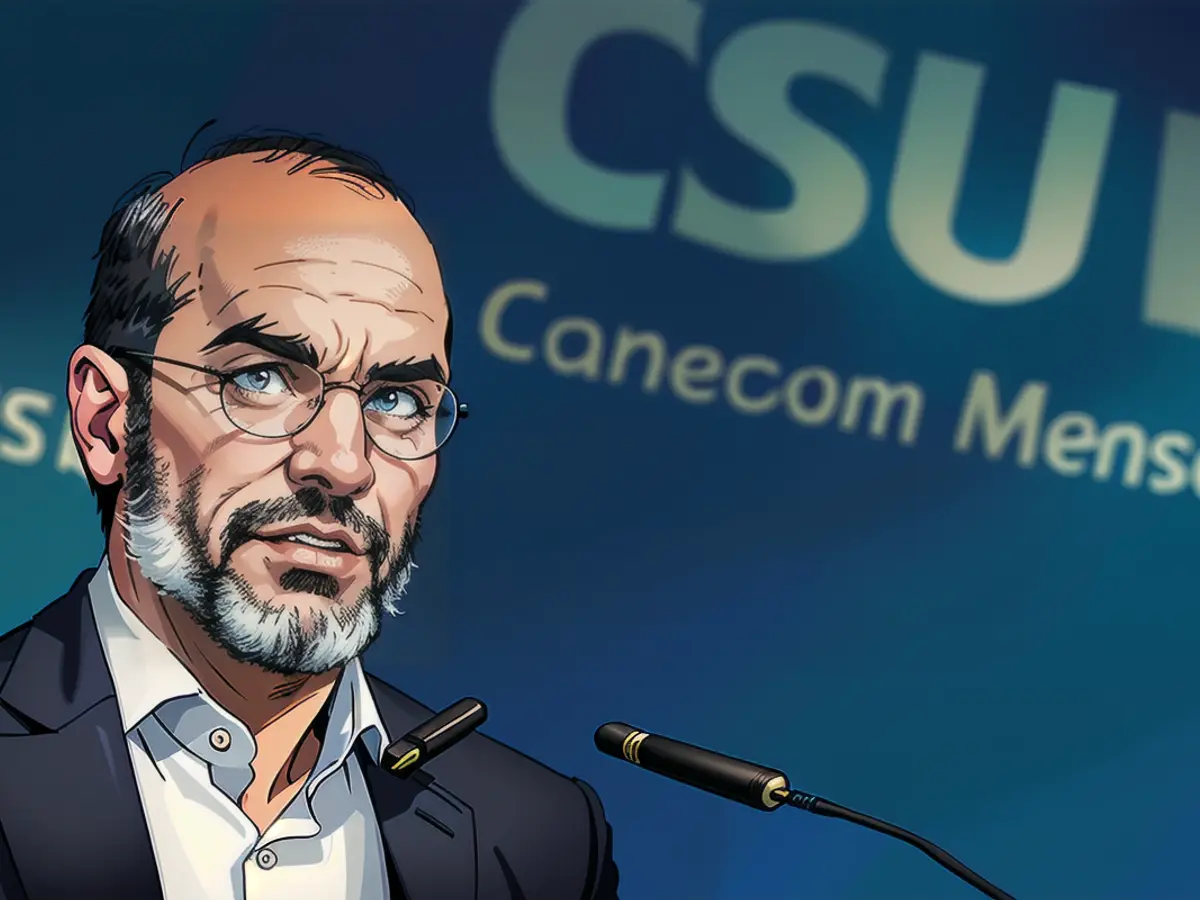
Seeking allies, Weber began building ties with Italy's right-wing Prime Minister Giorgia Meloni, sparking criticism from Bavaria Minister President Markus Söder. Despite this, Söder too paid a visit to Rome. Weber and the Union are now trying to forge a relationship based on three crucial commitments: upholding the rule of law, supporting Ukraine, and forming an alliance with America. These principles are present in Meloni's Fratelli d'Italia party, he says.
In his native Bavaria, Weber managed a small triumph in the recent election, receiving over 40% of the votes and exceeding the CSU's state parliament election results from last year. This win would be a significant accomplishment against Zampano Söder's flashy reputation in the Chancellery.
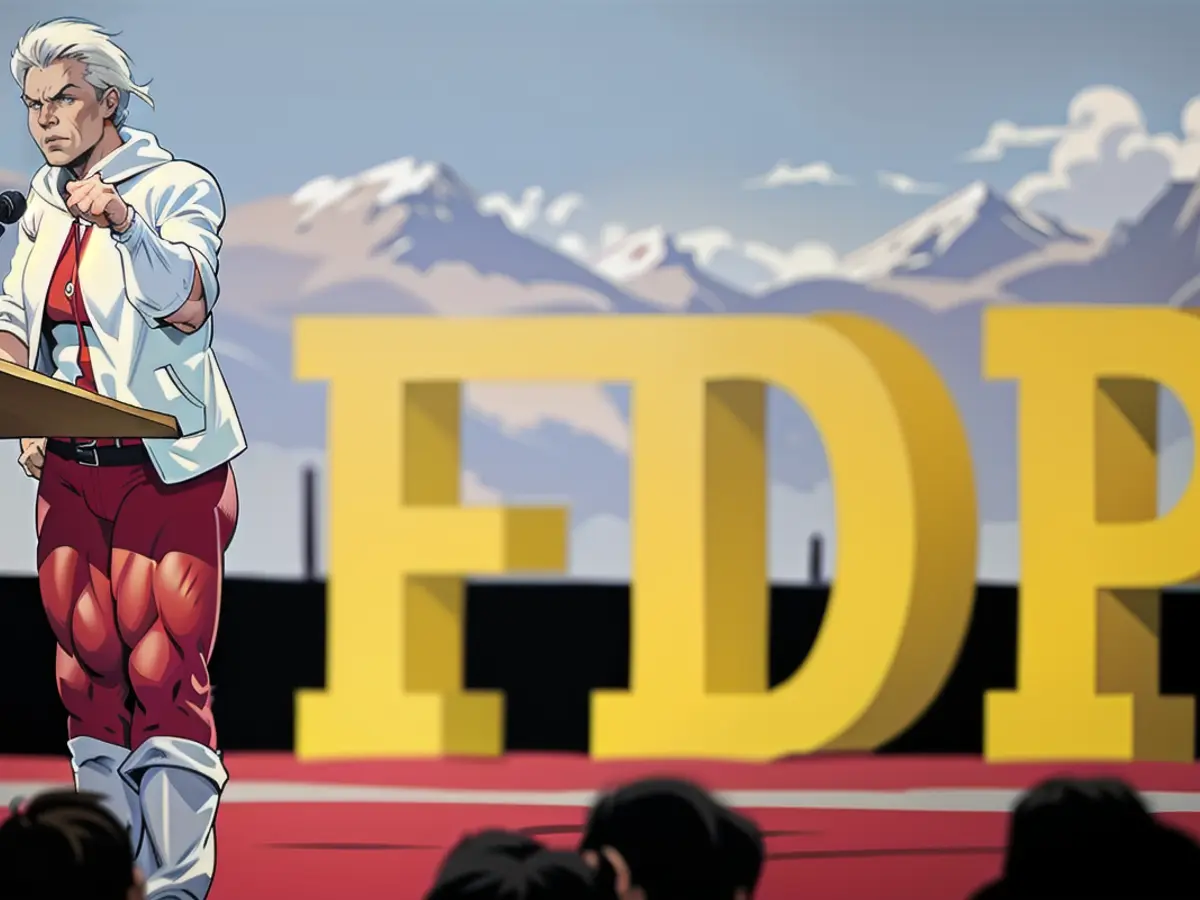
Meanwhile, Marie-Agnes Strack-Zimmermann, from the FDP, has gained substantial attention outside her hometown of Düsseldorf, particularly during this legislative period. As the Defense Committee chair, she has spoken out firmly in support of Ukraine and has been critical of Chancellor Olaf Scholz. After lashing out at the Chancellor in an interview, she later apologized, not to Scholz, but to autistic individuals. Her quick wit can occasionally backfire; she's stressed, even defying her party on certain issues, like the delivery of the Taurus missile.
Her marks in Brussels are those of defense and bureaucracy reduction. European politics requires more politicians like her, who can penetrate and articulate the complexities of Brussels. Although persuasive bluster and catchy slogans might not do much in Brussels, diplomacy is vital there.
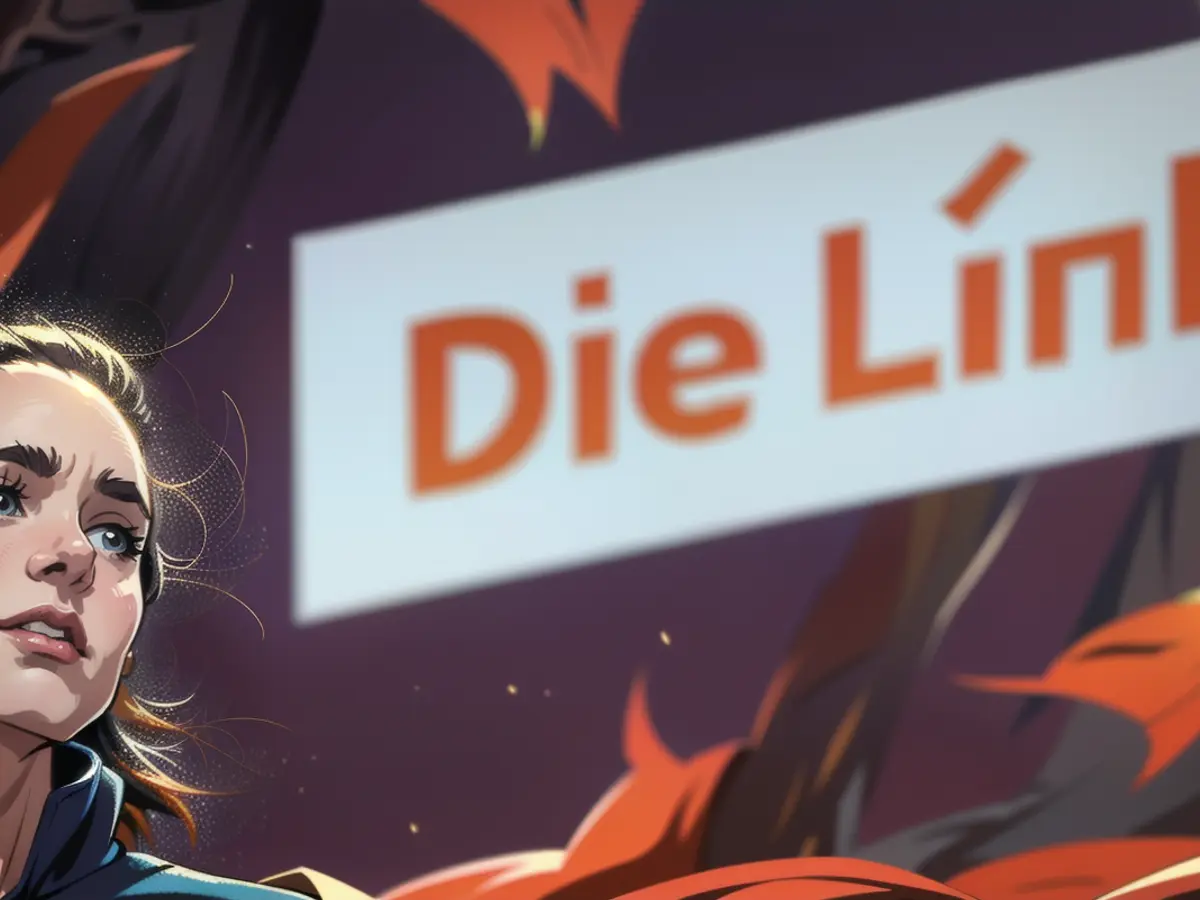
Carola Rackete, known for her seafaring adventures and ecological efforts, wants to join the Brussels office of the Left, despite not being a member. With the Left's popularity dwindling to a mere 3% in polls, it's a difficult task for Rackete to pull off. In RTL/ntv trend barometer surveys for the federal election, the party no longer features in the individual rating, now being categorized as part of other parties.
This downward spiral has been accelerated by Sahra Wagenknecht, former faction leader of the Left. By founding her own party, "Alliance Sahra Wagenknecht," she lured both MPs and voters from the Left. As Wagenknecht advocates for stricter migration policies and denounces the "lifestyle Left," Rackete stands for anti-discrimination and increased climate protection. Rackete can secure a spot in parliament, but only a few other Left MPs will join her due to their lackluster polling results.
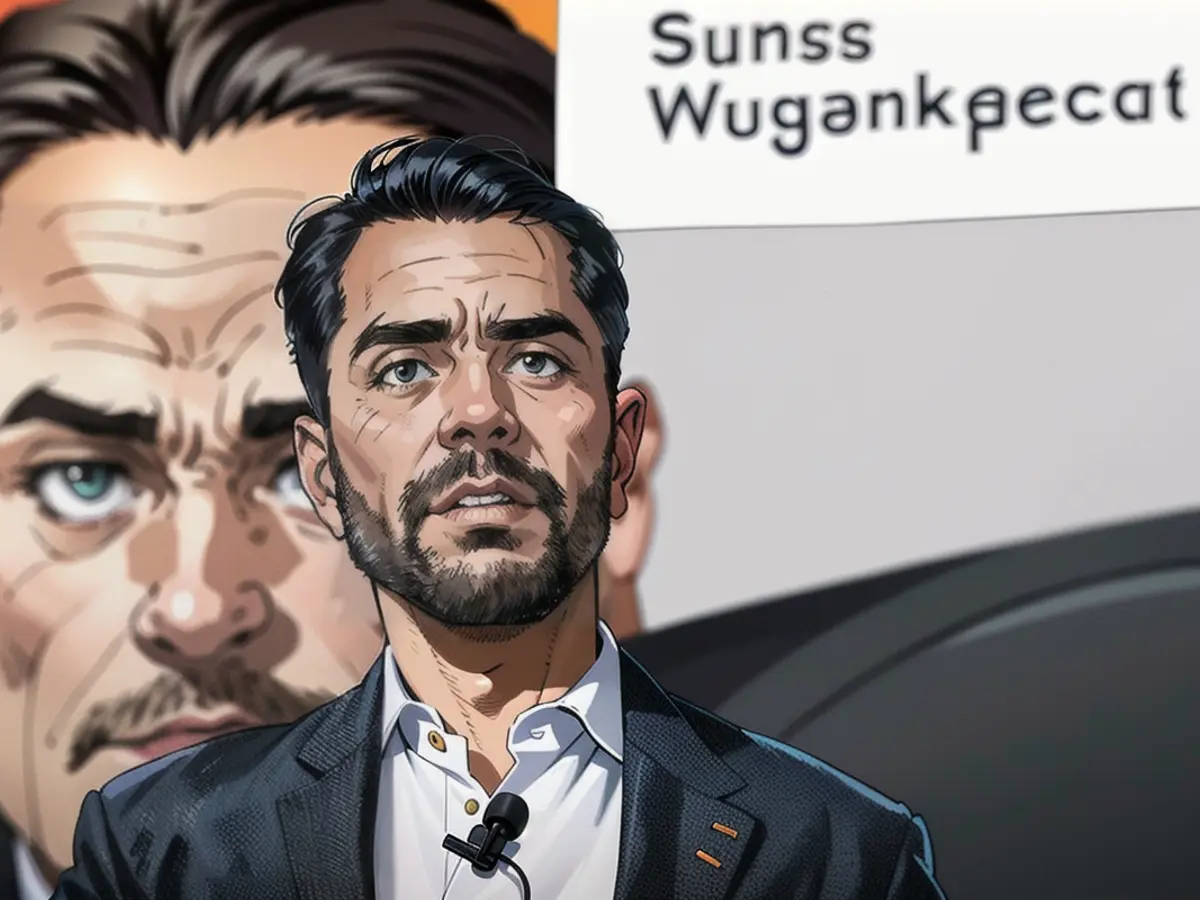
Another significant figure in "Alliance Sahra Wagenknecht" is Fabio di Masi, who is well-known for his proficiency in financial policy from his previous party. As the EU elections reveal how the public perceives his party, the Alliance can gauge their prospects for upcoming state and federal elections. Wagenknecht's ability to attract renowned individuals like Fabio De Masi has helped strengthen her faction's foundation.
Wagenknecht's brand of politics prioritizes immigration restrictions and criticizes what she calls the "lifestyle Left." However, Rackete advocates for anti-discrimination and enhanced climate protection. Rackete aims to mark a presence in parliament, albeit with only a few accompanying Left MPs due to their dismal polling results.
In the BSW election program, the focus is on distributional policies. The party takes a different approach from the Left, as it calls for more social benefits but excludes asylum seekers. Their intent is to limit migration. In foreign affairs, the BSW has a stronger affinity for Russia compared to the United States. De Masi frequently adopts anti-NATO stances. He condemns the Russian invasion of Ukraine, but believes the NATO should not have expanded, thus approaching Russia's borders. This, he argues, would have triggered Moscow.
Read also:
- Katarina Barley, from the SPD, is closely associated with Chancellor Scholz in campaign materials, although their personalities may differ.
- Marie-Agnes Strack-Zimmermann, from the FDP, has gained attention for her strong support of Ukraine and criticism of Chancellor Scholz.
- Maximilian Krah, the AfD's candidate for the European elections, has faced controversy due to his alleged ties to China and Russia.
- Terry Reintke, Bündnis90/Die Grünen, is the Greens' Spitzenkandidatin for the European elections but is not as well-known in Germany.
- Katharina Barley wants the Green Deal of the Commission to be saved if Ursula von der Leyen continues as Commission President, or she may seek alliances with more conservative parties.
- Manfred Weber, from the CSU, serves as the chair of the conservative European party family EPP and is seeking to form alliances based on supporting Ukraine, upholding the rule of law, and forming an alliance with America.
- Sahra Wagenknecht, by founding her own party, "Alliance Sahra Wagenknecht," has attracted both MPs and voters from the Left.
- AfD's campaign leader Maximilian Krah resigned to prevent further decline for his party, citing controversy over his alleged ties to China and Russia.
- Carola Rackete, known for her seafaring adventures and ecological efforts, wants to join the Brussels office of the Left despite not being a member, despite the Left's low polling results.
